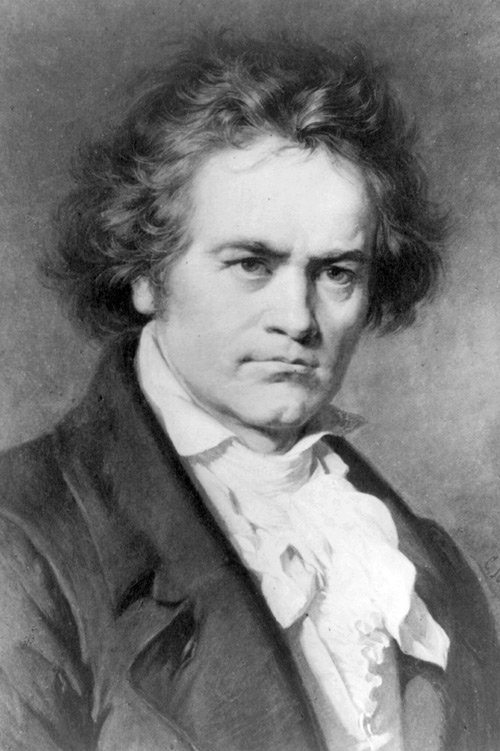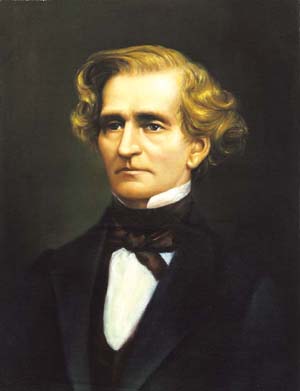This Week in Classical Music: December 11, 2023. Beethoven and Berlioz. On December 16th we’ll celebrate Ludwig van Beethoven’s 253rd anniversary. As we thought of it, we remembered what happened on this date three years ago when the world was supposed to celebrate a monumental date, Beethoven’s 250th. It didn’t happen, as our musical organizations couldn’t bring themselves to honor a white male composer – that was the year of Critical Race Theory run amok, DEI ruling the world, and sanity running for cover On the website Music Theory’s White Racial Frace, Philip Ewell, a black musicologist, published an article titled “Beethoven Was an Above Average Composer – Let’s Leave It at That” which contained a sentence: “But Beethoven’s Ninth Symphony is no more a masterwork than Esperanza Spalding’s 12 Little Spells.” Alex Ross, our most important public music critic, felt compelled to respond to this nonsense with an article of his own, publishing “Black Scholars Confront White Supremacy in Classical Music” in the New Yorker magazine. The article's subtitle was: “The field must acknowledge a history of systemic racism while also giving new weight to Black composers, musicians, and listeners.” In the New York Times, Anthony Tomassini, the chief classical music critic who is no longer with the newspaper, wrote an article about the harm of the blind, behind-the-curtain orchestral auditions. Those were widely accepted a quarter century ago to avoid any racial or gender biases, but Tomassini argued that it hinders the racial diversification of our orchestras: “The audition process should take into account race, gender and other factors.” We wonder if he still thinks that way, or was that just intellectual cowardice, an attempt to cover his hide: after all, for decades he was toiling in a field that purportedly turned out to be racist through and through, and in all these years it never occurred to him to assess it in racial terms. All of this was just three years ago. This major burst of insanity seems to be behind us and hopefully will dissipate completely, sooner rather than later. Do we need to add a disclaimer that we are totally against any racial and gender discrimination, whether in music or any other cultural or social sphere? We hope not.
Back to Beethoven. We looked up our library, and it turns out that while we have most of Beethoven’s piano sonatas, we don’t have the sonata no. 19, a short and misnumbered piece, easy enough to be well known to practically all young pianists. Beethoven composed it sometime in 1797, about the same time as his sonatas nos. 3 and 4, but it wasn’t published till 1805 and thus acquired its late opus and number. Here it is, performed by Alfred Brendel in a 1992 recording.
Also, on this day 220 years ago Hector Berlioz was born in La Côte-Saint-André, a small town halfway between Lyon and Grenoble. Berlioz was one of the greatest composers France ever produced, and a very unusual one at that: he didn’t follow any established schools and didn’t leave any behind. We’ve written about Berlioz many times, and he requires a separate entry, so for now, here is his symphony cum viola concerto Harold in Italy (parts 1, Harold in the mountains,2, March of the pilgrims, 3, Serenade of an Abruzzo mountaineer, and 4, Orgy of bandits). The great violinist Yehudi Menuhin is playing the viola, with Sir Colin Davis conducting the Philharmonia Orchestra.
Beethoven, DEI, Berlioz 2023
This Week in Classical Music: December 11, 2023. Beethoven and Berlioz. On December 16th we’ll celebrate Ludwig van Beethoven’s 253rd anniversary. As we thought of it, we remembered what happened on this date three years ago when the world was supposed to celebrate a monumental date, Beethoven’s 250th. It didn’t happen, as our musical organizations couldn’t bring themselves to honor a white male composer – that was the year of Critical Race Theory run amok, DEI ruling the world, and sanity running for cover On the website Music Theory’s White Racial Frace, Philip Ewell, a black musicologist, published an article titled “Beethoven Was an Above Average Composer – Let’s Leave It at That” which contained a sentence: “But Beethoven’s Ninth Symphony is no more a masterwork than Esperanza Spalding’s 12 Little Spells.” Alex Ross, our most important public music critic, felt compelled to respond to this nonsense with an article of his own, publishing “Black Scholars Confront White Supremacy in Classical Music” in the New Yorker magazine. The article's subtitle was: “The field must acknowledge a history of systemic racism while also giving new weight to Black composers, musicians, and listeners.” In the New York Times, Anthony Tomassini, the chief classical music critic who is no longer with the newspaper, wrote an article about the harm of the blind, behind-the-curtain orchestral auditions. Those were widely accepted a quarter century ago to avoid any racial or gender biases, but Tomassini argued that it hinders the racial diversification of our orchestras: “The audition process should take into account race, gender and other factors.” We wonder if he still thinks that way, or was that just intellectual cowardice, an attempt to cover his hide: after all, for decades he was toiling in a field that purportedly turned out to be racist through and through, and in all these years it never occurred to him to assess it in racial terms. All of this was just three years ago. This major burst of insanity seems to be behind us and hopefully will dissipate completely, sooner rather than later. Do we need to add a disclaimer that we are totally against any racial and gender discrimination, whether in music or any other cultural or social sphere? We hope not.
remembered what happened on this date three years ago when the world was supposed to celebrate a monumental date, Beethoven’s 250th. It didn’t happen, as our musical organizations couldn’t bring themselves to honor a white male composer – that was the year of Critical Race Theory run amok, DEI ruling the world, and sanity running for cover On the website Music Theory’s White Racial Frace, Philip Ewell, a black musicologist, published an article titled “Beethoven Was an Above Average Composer – Let’s Leave It at That” which contained a sentence: “But Beethoven’s Ninth Symphony is no more a masterwork than Esperanza Spalding’s 12 Little Spells.” Alex Ross, our most important public music critic, felt compelled to respond to this nonsense with an article of his own, publishing “Black Scholars Confront White Supremacy in Classical Music” in the New Yorker magazine. The article's subtitle was: “The field must acknowledge a history of systemic racism while also giving new weight to Black composers, musicians, and listeners.” In the New York Times, Anthony Tomassini, the chief classical music critic who is no longer with the newspaper, wrote an article about the harm of the blind, behind-the-curtain orchestral auditions. Those were widely accepted a quarter century ago to avoid any racial or gender biases, but Tomassini argued that it hinders the racial diversification of our orchestras: “The audition process should take into account race, gender and other factors.” We wonder if he still thinks that way, or was that just intellectual cowardice, an attempt to cover his hide: after all, for decades he was toiling in a field that purportedly turned out to be racist through and through, and in all these years it never occurred to him to assess it in racial terms. All of this was just three years ago. This major burst of insanity seems to be behind us and hopefully will dissipate completely, sooner rather than later. Do we need to add a disclaimer that we are totally against any racial and gender discrimination, whether in music or any other cultural or social sphere? We hope not.
Back to Beethoven. We looked up our library, and it turns out that while we have most of Beethoven’s piano sonatas, we don’t have the sonata no. 19, a short and misnumbered piece, easy enough to be well known to practically all young pianists. Beethoven composed it sometime in 1797, about the same time as his sonatas nos. 3 and 4, but it wasn’t published till 1805 and thus acquired its late opus and number. Here it is, performed by Alfred Brendel in a 1992 recording.
sometime in 1797, about the same time as his sonatas nos. 3 and 4, but it wasn’t published till 1805 and thus acquired its late opus and number. Here it is, performed by Alfred Brendel in a 1992 recording.
Also, on this day 220 years ago Hector Berlioz was born in La Côte-Saint-André, a small town halfway between Lyon and Grenoble. Berlioz was one of the greatest composers France ever produced, and a very unusual one at that: he didn’t follow any established schools and didn’t leave any behind. We’ve written about Berlioz many times, and he requires a separate entry, so for now, here is his symphony cum viola concerto Harold in Italy (parts 1, Harold in the mountains,2, March of the pilgrims, 3, Serenade of an Abruzzo mountaineer, and 4, Orgy of bandits). The great violinist Yehudi Menuhin is playing the viola, with Sir Colin Davis conducting the Philharmonia Orchestra.